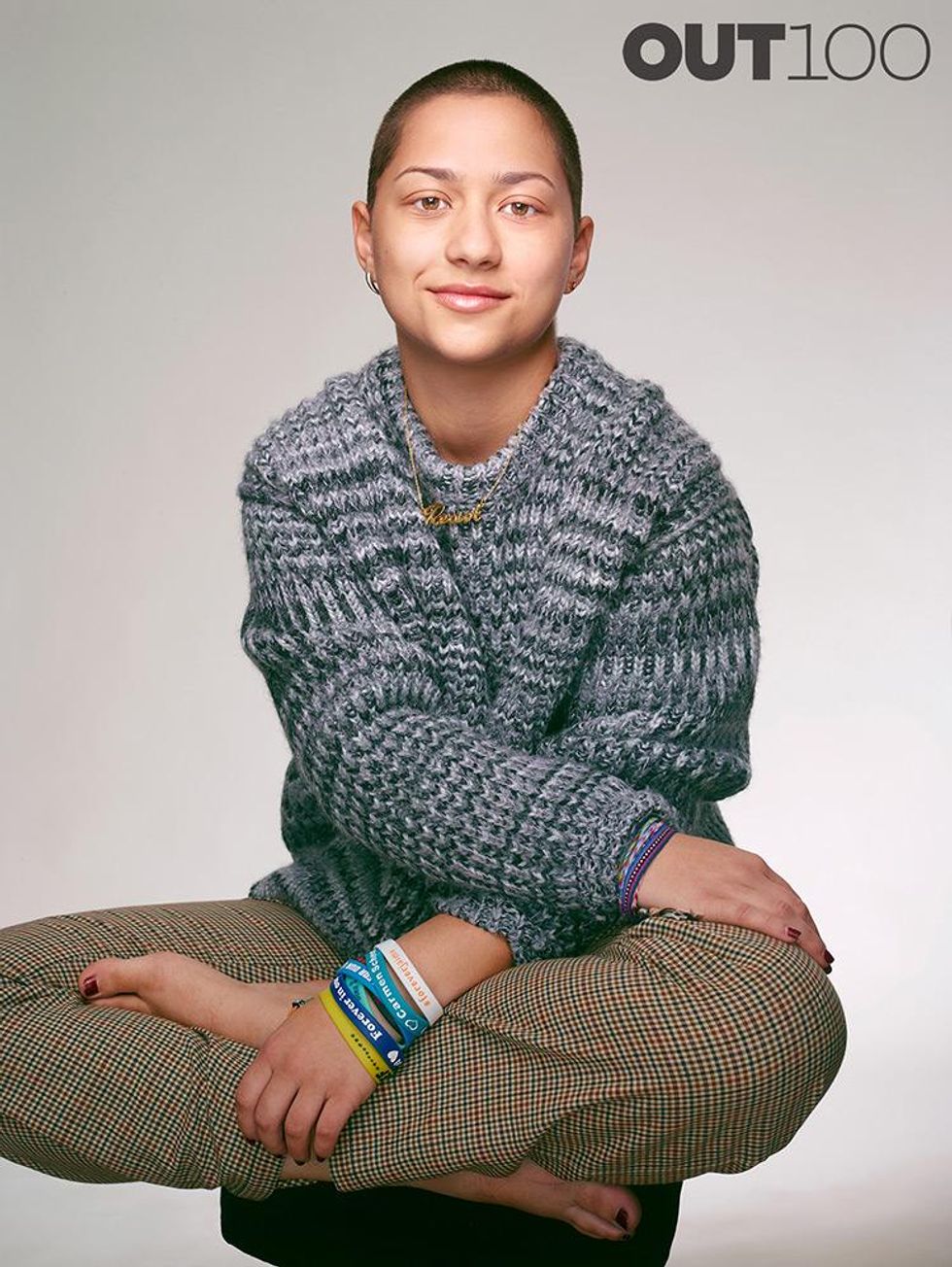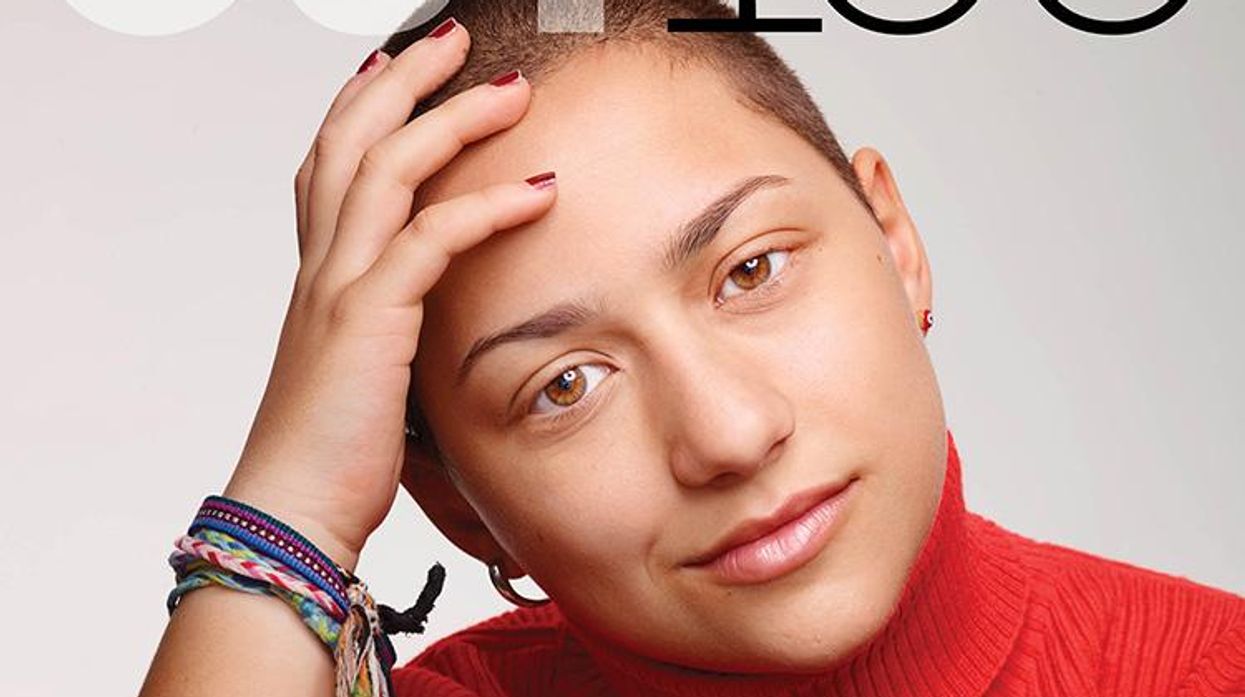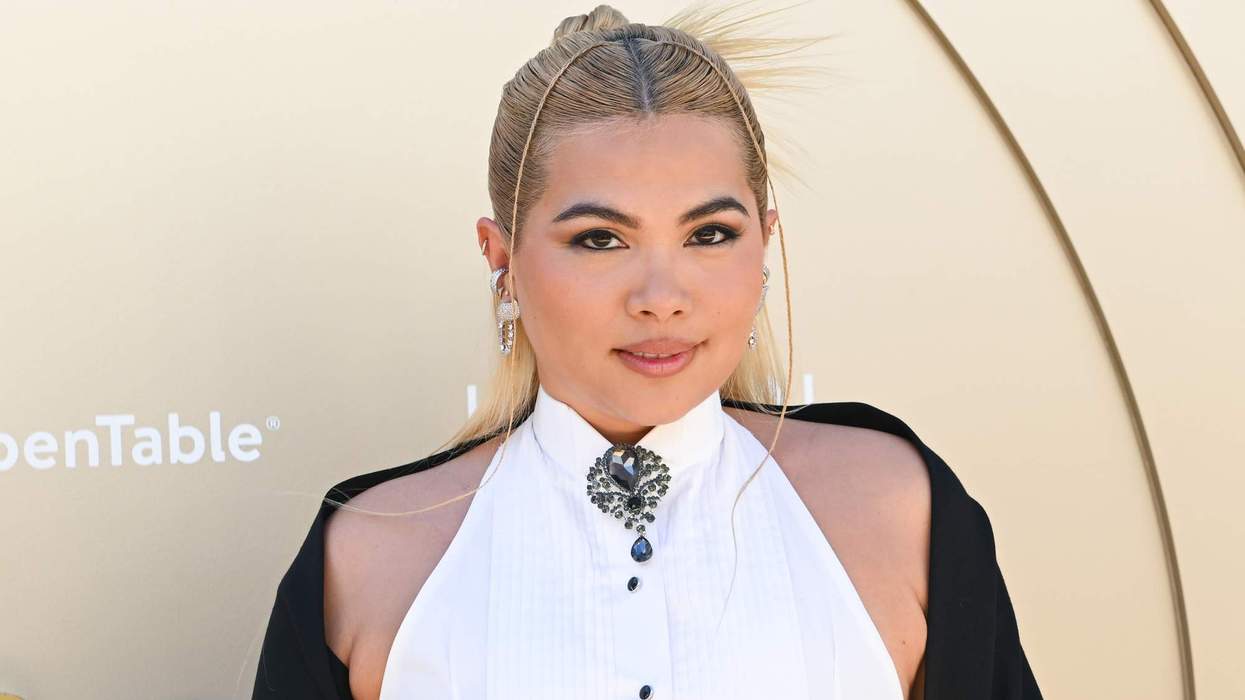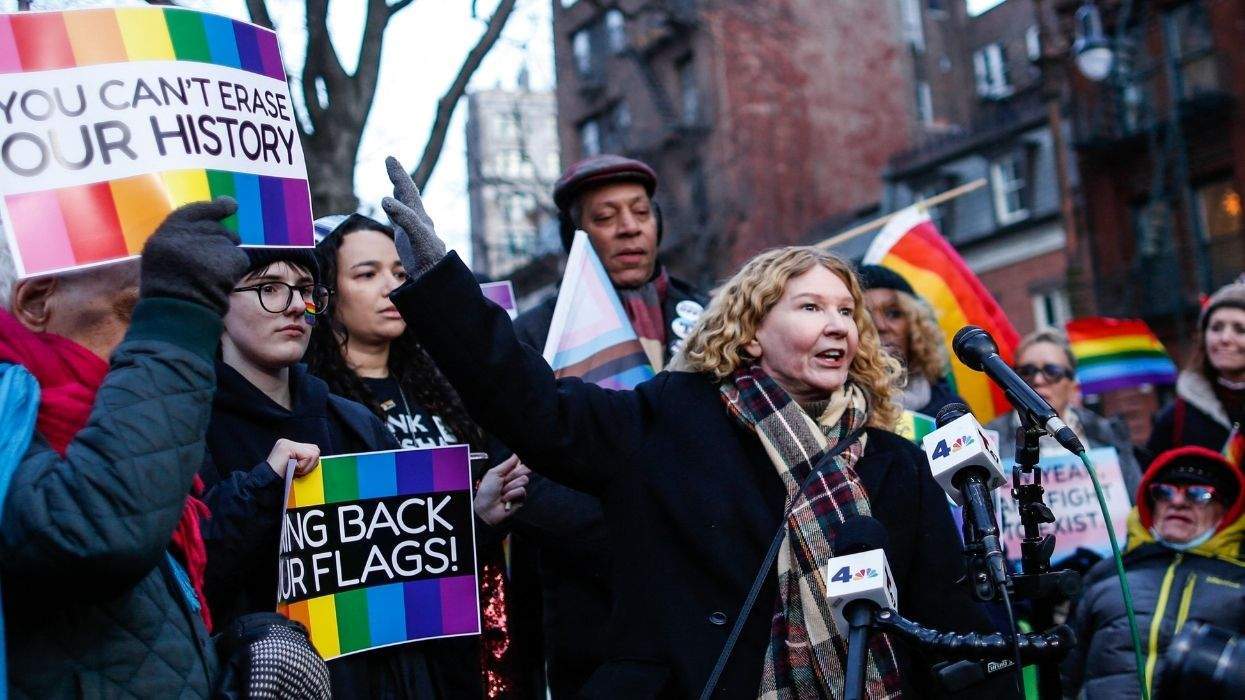On February 14, Emma Gonzalez's life was forever changed when a gunman walked into her high school, Marjory Stoneman Douglas, in Parkland, Fla. But her story didn't end after the news trucks moved on. In response to the tragedy, she and her classmates organized a protest so powerful, it has grown into a national movement. A month after the tragedy ripped through their school, students led the March for Our Lives protest in Washington, D.C. There, Gonzalez took to the podium and offered a silent tribute that lasted 6 minutes and 20 seconds -- the same amount of time it took for 17 of her classmates and teachers to be killed, and 17 more to be injured. Her moving gesture quickly made headlines and became the most talked-about moment from the daylong demonstration.
The massive turnout for the march was a surprising show of support surrounding grisly acts that, for too long, had been accepted with apathy in our country. Even Gonzalez was struck by how large the crowd was. "I got up onstage, and none of us could go anywhere," she says. "If we wanted to move, we couldn't because of how many people were there."
If that protest were all Gonzalez and her classmates had accomplished this year, it would have been a landmark achievement. But their work to change the national conversation about gun violence continues, and it energizes Gonzalez to meet more people, advocate for gun law reform, and bring to the forefront issues facing communities of color.
"One of the coolest experiences for me was the Peace March in Chicago on Friday, June 15," she says, explaining that activists in Chicago organized marches every Friday to combat the city's high rate of gun violence in the summer months. "We marched through the streets and neighborhoods, and we were all chanting, screaming, and singing. And we brought the press with us to shine more light on the event."
Before the Parkland shooting, Gonzalez was already involved with advocacy and organizing, having served as the president of her school's Gay Straight Alliance during her senior year, working with about 30 students. "Thirty kids is a lot for a school with 3,000 people," she says. "Most of them weren't out, but they came anyway. They had shoulders to cry on. We had a really good group -- they were able to help me, and I was able to help them."
As part of her GSA duties, Gonzalez taught her classmates about queer milestones, and she feels passionately that younger queer generations should learn from the past. "They can learn the history of our culture, and our community, and the fight, and the struggles," she says. "Every time you go to a Pride event, it's a celebration of love, but it's also a remembrance of everything that started the beginning of being accepted in this society, which doesn't always want to accept us."

To Gonzalez, identity is fluid and more encompassing than basic labels. "Identity to me means the way that you describe yourself when someone says, 'Describe yourself,'" she explains. "If I were to describe my identity, I would say that I am half Cuban, I'm bald, I'm bisexual, I'm 5-foot-2, I like to write, I like to partake in the arts, and I like to crochet. I would hope that if I were introducing myself to somebody, through those things, they would be able to get an understanding of who I am."
Despite so much sadness in one year, Gonzalez feels hopeful for the future. "There are so many people who are coming forward and being like, 'Yep. I am not straight. I am not cis. And I am here to stay,'" she says. "Our society doesn't need to be cis, heteroromantic, heteronormative, and heterosexual all the time. We have these different people, and they're beautiful, and I'm just so glad to know that there are so many people who are out. And even if they're in the closet, they still know who they are."
And Gonzalez's determination to prevent others from experiencing the horrors of a mass shooting will stretch long after this year. "The fact is that gun violence is still prevalent in our society," she says. "We're going to be fighting for this until it's fixed."
Photography by Martin Schoeller.
Styling by Michael Cook.
Makeup: Zac Hart using Charlotte Tilbury Cosmetics
Photographed at Schoeller Studio, New York City
Sweater by Acne Studios.
Pants by A.P.C.





























